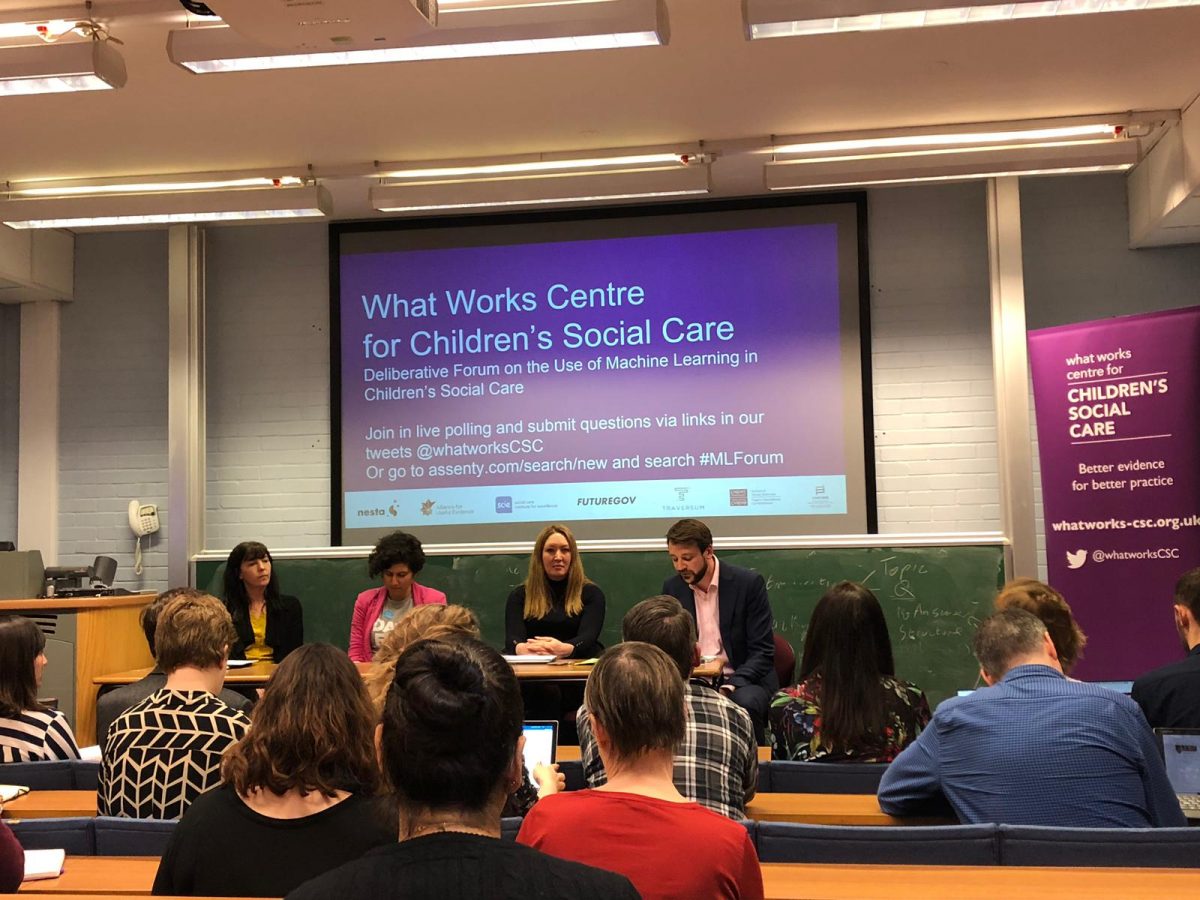Last night we hosted a deliberative forum on machine learning at King’s College London, bringing together speakers from the worlds of data science, academia, and social work to try and shine a light on a topic which has already been the subject of a great deal of discussion. We convened the event as part of our goal to facilitate a national, evidence-led debate on machine learning in children’s social care.
More than 60 people, coming from an array of different organisations and from around the country made the trip to London for the event, and so far 355 people have watched the live stream and video of the event online. We may have organised the event, but one of the most important things for us is that that this isn’t about the What Works Centre. We were in listening mode to hear talks by Giselle Cory from DataKind, Dr Joanna Reddon from the Data Justice Lab at Cardiff University, and Claudia Megele from Hertfordshire County Council, offering three different perspectives on the use of machine learning, moderated by Ben Wilkinson from the Policy Institute at King’s.
The second half of the event was a lively question and answer session, with questions ranging from ethics, to bias, to how the use of algorithms might change both the way data are collected and the practice of social workers themselves. We’re still reflecting on what we’ve heard and the debate in the room, but there are already a few ways that we’re going to feed that into the research we’re conducting with local authorities. Things like: measuring, and trying to understand the biases that come about from the process; involving social workers, not just data scientists, every step of the way; checking how well (or, more likely, how badly) a model that works in one place can apply in another context; and, publishing what we find to inform debate and discussion in future.
Most encouraging to us was the number of people who – whether they were supportive of using machine learning or more skeptical – welcomed an open debate about this issue and what it means for social workers. Their willingness to give two hours of their Wednesday evening to take part in this discussion (special mention goes to Beverley Jones and Matthew Purves from Walsall and Stockport respectively for making the trip), tells us this discussion is far from over.
We know that the What Works Centre needs to continue to listen – and to make sure that this work is led by the needs of social workers, children and families, and not, as Giselle said, looking for silver bullets, unicorns or magic.

